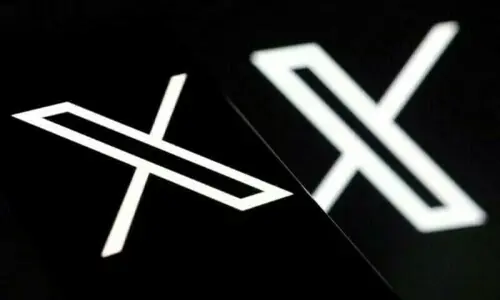KARACHI: Several residents across the country have reported receiving a ‘CoronaALERT’ text message advising them to take necessary precautionary measures as they may have come in contact with someone known to have coronavirus.
“It has been observed that you may have come in contact with a confirmed coronavirus case in the last 14 days. You are, therefore, requested to take necessary precautionary measures by self-quarantine,” the alert reads.
It further advises the person to visit a nearby health facility in case of developing symptoms like fever, cough, difficulty in breathing or body aches.
Telecom authorities have confirmed that the message is authentic. The Pakistan Telecommunication Authority (PTA) told Dawn that the message was being sent to selected people only. “Those identified were duly screened by relevant authorities,” it said.
In a press release issued after Dawn approached the PTA, the authority said that at the request of the Ministry of Health, it was sending out SMS alerts to people who might have come in contact with affected individuals during travel or at other places.
Rights activists wonder where the data will be stored
The initiative that relies in part on a cell phone tracking system is led by the government’s Digital Pakistan programme. The system works by first identifying locations visited by a known Covid-19 patient over the last 14 days. When the owner of a phone tests positive for Covid-19, authorities use a record of their recent movements to notify owners of any other phones that recently came close to that phone of their risk of infection and advised them to self-isolate.
“To assist the health ministry in identifying maximum people at risk, we are using all possible types of data sources with the help of telecom providers and PTA,” Tania Aidrus, head of Digital Pakistan, told Dawn.
In the absence of clarity by the government, there are many concerns unaddressed such as criteria for selecting a person at risk. Several users said only one member of the family had received the alert despite being residing in the same vicinity. Rights activists wondered where the data would be stored.
Ms Aidrus did not specify the extent to which public data was being used to identify clusters. “We are doing everything to help contain the virus. These alerts should not create panic but encourage precaution,” she maintained.
“Learning from places like South Korea, we facilitated @nhrscofficial to send SMS alerts to those who have been in close proximity to people who tested #Covid positive. If you’ve received this message, I request you to stay calm & go into self isolation,” Tania Aidrus wrote on Twitter.
How are people traced?
Phone location can be recorded using various methods. For example, mobile carriers can provide location data of phones using cell site location information (CSLI) — based on which cell towers a phone connects to and when. As mobile devices transition between cell towers, the network also records events such as calls, SMS and data usage, alongside time and location, in the form of call detail records (CDRs). Using CDR analysis, details such as locations visited by a confirmed Covid-19 patient as well as cell phone numbers of others who were in the same vicinity at the time can be obtained from the patient’s phone data.
According to a tweet by the Punjab chief minister’s focal person on digital media, the government is already using the CDR method for contact tracing.
Other technologies such as GPS sensors built directly into phones and Bluetooth can also be used to acquire location data for more precision at a given time. However, the radius is not 100 per cent accurate.
Global surveillance
Pakistan is not alone in adopting technology to battle the virus.
Singapore has launched a contact-tracing smartphone app to allow authorities to identify those who have been exposed to people infected with coronavirus as part of efforts to curb the spread of the disease.
TraceTogether app will work by exchanging short distance Bluetooth signals between phones to detect other participating users in close proximity of two metres.
Taiwan has activated what it calls an “electronic fence”, which tracks mobile phone data and alerts authorities when someone who is supposed to be quarantined at home is leaving the house.
Published in Dawn, March 24th, 2020
































